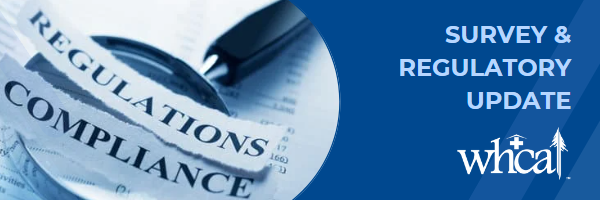Jul 11 2024 | Resident Smoking
Residents who smoke require careful consideration to promote safe habits while honoring Washington state’s smoking laws. Even if your building is a “no smoking” facility, a resident who smokes (even off-campus) requires an assessment.
All assisted livings are required to follow applicable state laws; the smoking law is no exception. While assisted livings are homes to thousands of Washingtonians, these care settings are also considered places of employment; no indoor smoking is allowed in places of employment.
Vapor Products
RCW 70.345 took effect in 2016 and regulates the sale and use of vapor products in Washington. The law allows local boards of health to pass regulations on vaping in public spaces and places of employment. As of this article, 13 of Washington’s 39 counties have banned the use of vapor products in places of employment (see details here). Facilities situated in any of these 13 counties cannot, then, allow residents to use vape pens inside the facility. Those facilities not located in any of these counties can have policies that do not allow indoor use of these products.
Policies and Procedures
Every assisted living facility should have a policy and procedure on smoking; this policy should be shared with residents as they move into the facility, so they are aware of the limitations and safety requirements necessary; the policy should also be shared with current residents who begin smoking.
The policy should include such considerations as what the facility allows by way of smoking (nicotine? Cannabis? Limitations to the type of smoking apparatus), identified smoking locations, the expectation that smoking rules are followed such as use of approved ashtrays and no smoking near oxygen canisters, the need for initial and ongoing safety assessments to ensure the resident can smoke safely unsupervised, and a guide to staff on what to do should safe smoking strategies not be realistic for a resident. Other considerations include safe charging of electronic vapor products and safe storage of smoking supplies.
Assessments and Negotiated Service Agreements
The facility must assess each resident for safety considerations, including the individual’s ability to smoke unsupervised. The facility must also assess a resident’s history of substance abuse and any conditions that may require behavioral intervention strategies. All these assessment topics may pertain to smoking cigarettes, cigars, pipes as well as electronic cigarettes/vape pens or cannabis. The risks to monitor, and directions for staff must be included in the resident’s negotiated service agreement.
Monitoring Residents’ Well-being
Changes in a resident’s ability to smoke safely unsupervised warrant prompt attention and follow-up. Strategies to promote safety while balancing residents’ rights are important and must be documented to demonstrate intervention.
Questions about assisted living regulations can be sent to Vicki McNealley via email, or call her at 360-352-3304 extension 107.

